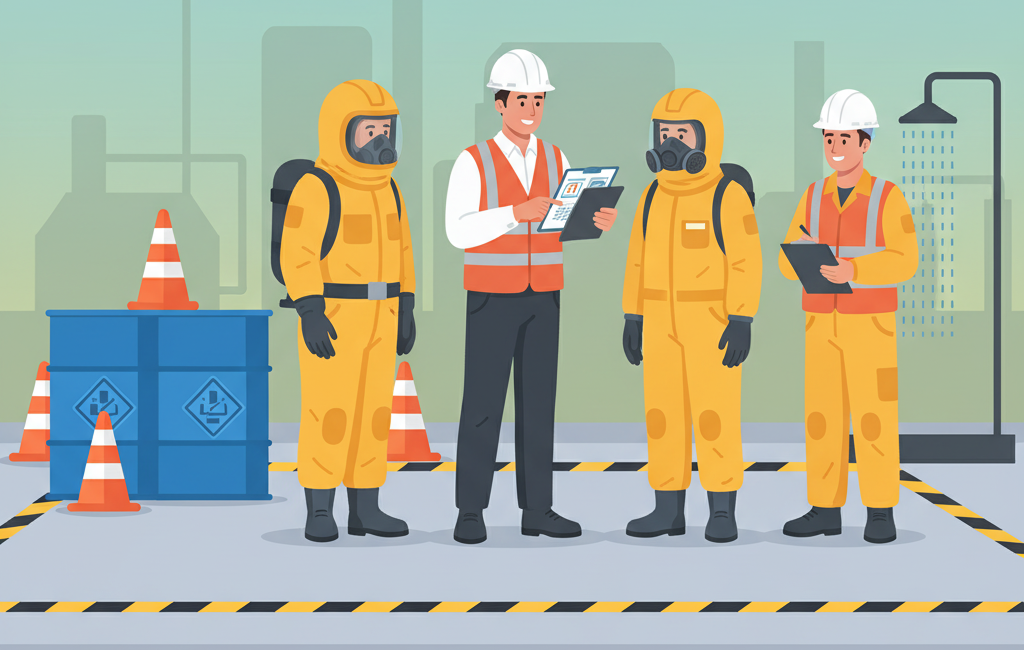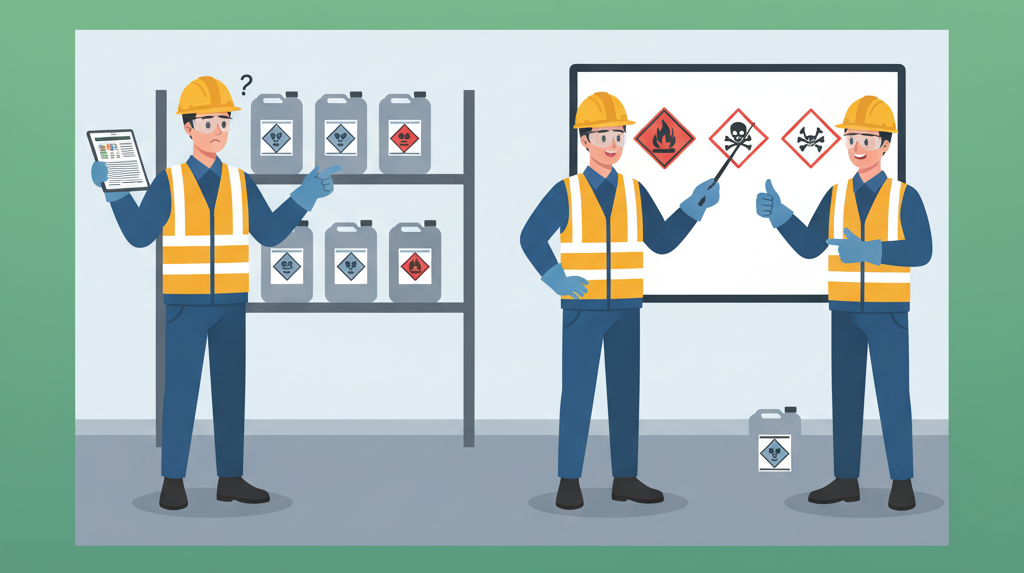As part of the Occupational Safety and Health Act (signed into law in 1970), OSHA (Occupational Health and Safety Organization) imposes certain requirements and obligations on businesses in order to protect the safety, health and well-being of their employees. One such requirement is HAZWOPER Training.
OSHA requires HAZWOPER safety certificates for those businesses and employees that deal with the handling or transportation of hazardous materials. What is HAZWOPER training? HAZWOPER training is simply an educational course designed to keep your employees safe. Hazardous substances pose a high risk to many individuals, especially if those substances are disposed of improperly. OSHA works to minimize this risk by implementing state-of-the-art safety procedures for specific substances.
By obtaining HAZWOPER certification, you certify and comply with OSHA for the responsible handling of potentially dangerous materials.
What is HAZWOPER training?
HAZWOPER training includes specialized education and training on specific hazardous materials commonly used in manufacturing, agriculture and other industries.
The HAZWOPER acronym
HAZWOPER, like OSHA, is an acronym.
The HAZWOPER acronym stands for “Hazardous Waste Operations and Emergency Response.”
As the name implies, it’s a safety certificate designated for individuals who interact with hazardous materials. HAZWOPER ensures dangerous substances continue to be handled responsibly in our businesses and communities.
What are HAZWOPER training requirements?
HAZWOPER training requirements are fairly straightforward. For a business to receive certification, employees must take and pass a one-time safety course covering all HAZWOPER procedures recommended by OSHA.
The certification course varies in length depending on a few factors, including the type of hazardous waste each employee (or business) interacts and deals with, the amount of exposure to hazardous materials, and the employee’s previous safety experience.
During this course, employees receive training on safety standards and best practices. They also must demonstrate their ability to perform their job duties according to the certificate’s safety requirements.
The initial HAZWOPER certification is valid for one year. HAZWOPER training requirements mandate a yearly refresher session (shorter than the initial training course). These yearly refreshers are required to maintain a HAZWOPER safety certification.
Who needs HAZWOPER training, according to OSHA?
Does OSHA require HAZWOPER certification for your employees? Below we’ve included a simple questionnaire that will help you determine if this certification is required.
You may need a HAZWOPER certificate if you answer “yes” to any of the following:
- Do your employees work in situations where oxygen is scarce?
- Are your employees engaged in clean-up operations at an uncontrolled hazardous waste site?
- Are your employees involved in the maintenance or removal of underground infrastructure, such as pipes or tanks?
- Do your employees handle deadly substances?
- Do your employees handle combustible substances?
- Are your employees working in an area the government has identified as “Imminent Danger to Life and Health”?
NOTE: The above list is not comprehensive and you are encouraged to check the most current OSHA requirements for your business/industry to learn more and ensure you are in full compliance with all up to date standards and regulations.
If you answered “yes,” your employees likely need the safety training provided with a HAZWOPER certification. Not only is HAZWOPER training required by OSHA, but it’s also crucial for ensuring the continued safety and well-being of your employees, their families, and their communities.
How to obtain a HAZWOPER Certificate
Meeting the OSHA training requirements for a HAZWOPER certificate doesn’t need to be difficult. Simply enroll your employees in one of our OSHA-compliant HAZWOPER courses.
Dealing with dangerous substances is complex, demanding work. Our courses can save you time and energy by providing all OSHA-required training—so you can go back to serving your community.













